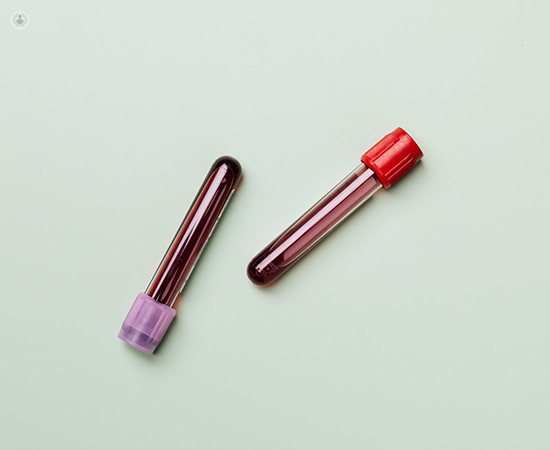Gilbert’s syndrome: can it lead to liver damage?
Written by:Gilbert’s syndrome is a relatively common, mild liver disorder in which the liver doesn’t process bilirubin properly in the blood. The condition affects around 5% of the UK population, which equates to around 1 in 20 people. In this article, Professor Shahid Khan explains everything that you need to know about Gilbert’s syndrome, including the symptoms and whether it is a life-threatening condition.

What is Gilbert’s syndrome?
Gilbert’s syndrome (GS) is not a disease but rather a condition in which someone intermittently may have higher than normal amounts of bilirubin in their blood.
Bilirubin is a yellow coloured substance that everyone has in their blood. It arises as a by-product when old red blood cells are broken down, which happens naturally. The lifespan of a normal red blood cell is around three months.
Bilirubin is chemically altered in the liver by special chemicals called enzymes to make it more easily excreted in the bile. In this case, the specific enzyme is called UGT. The UGT enzyme in people with GS alters the bilirubin less efficiently than those without GS.
What are the main symptoms of Gilbert’s syndrome?
Gilbert’s Syndrome is typically discovered incidentally when a routine blood test, or one done for another reason, finds a raised bilirubin level but all the other tests for liver function are normal.
Bilirubin levels in GS can fluctuate and when someone has significantly high bilirubin levels this may lead to jaundice. Jaundice is a yellowing of the skin and the whites of the eyes.
Higher bilirubin levels and hence more obvious jaundice in GS, often happens if the person is for any reason stressed or ill with an infection (for example a viral illness), fasted or dehydrated. In some women with GS, menstruation may also cause a spike in bilirubin levels.
Can Gilbert’s syndrome be cured?
GS cannot be cured. However, the relatively mild intermittent rises in bilirubin are not believed to damage the liver or the body.
Is Gilbert’s syndrome hereditary?
GS is inherited in what is called an autosomal recessive manner. This means that two copies of the gene responsible must be present for a trait to manifest. So to have GS, someone must have inherited two copies of the gene for slow UGT from their parents, one from each. Parents may not themselves have evident GS as one has to have both copies of the gene to have GS.
There are no other known risk factors for developing GS. It is not related to any lifestyle habits or caused by any specific environment.
Is Gilbert’s syndrome life-threatening?
No Gilbert’s syndrome does not cause death, liver failure or any other serious outcome.
Professor Khan is an expert in treating abdominal pain, viral hepatitis, fatty liver and liver cancer amongst many other conditions. You can book an appointment to see him via his Top Doctor’s profile here.


